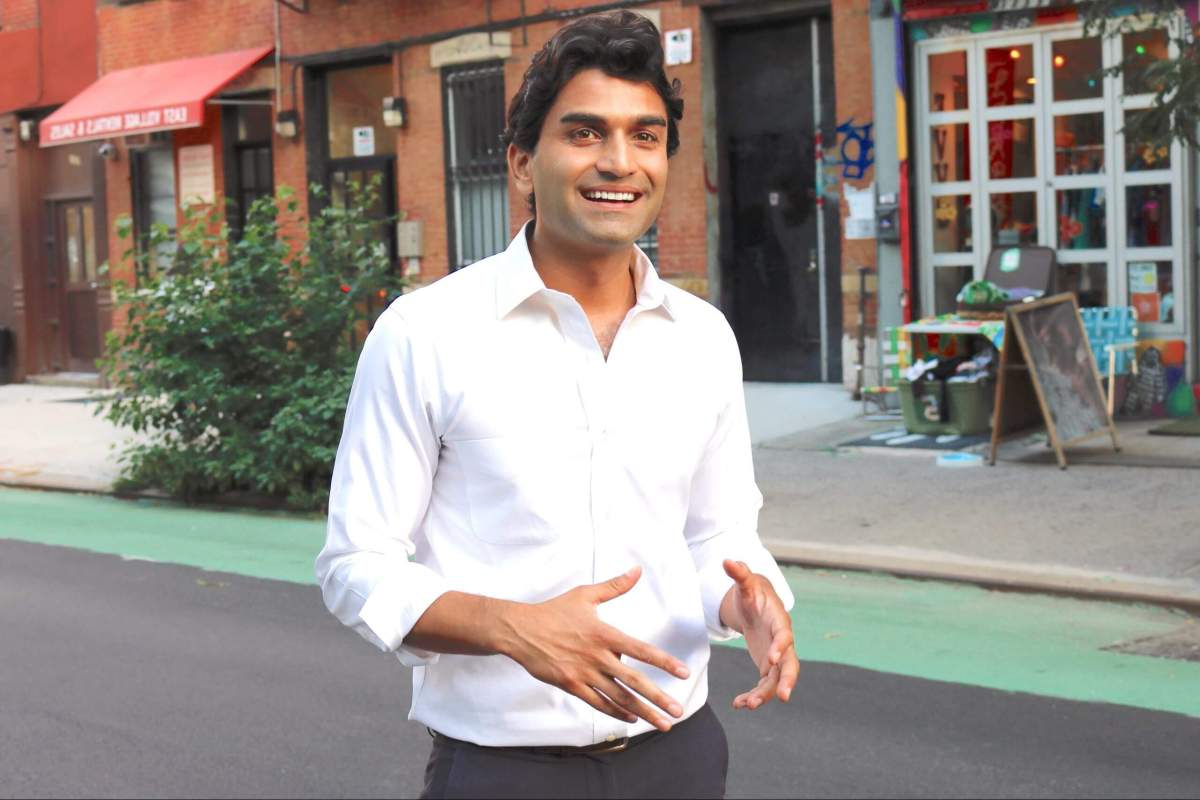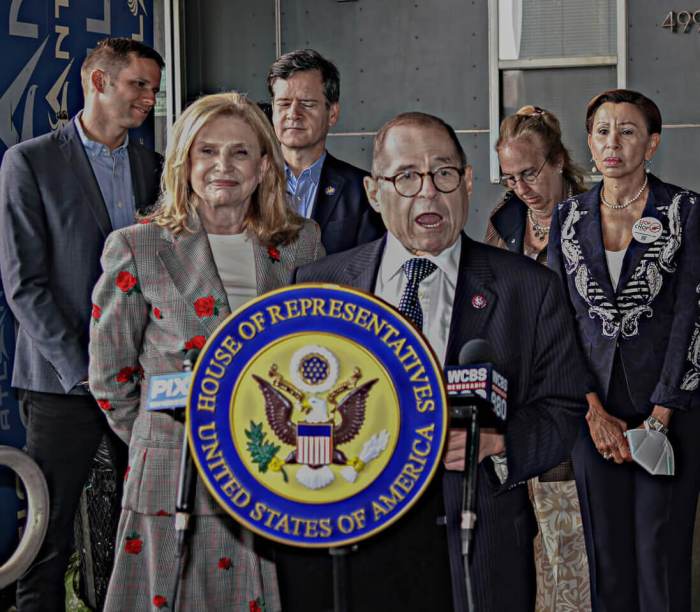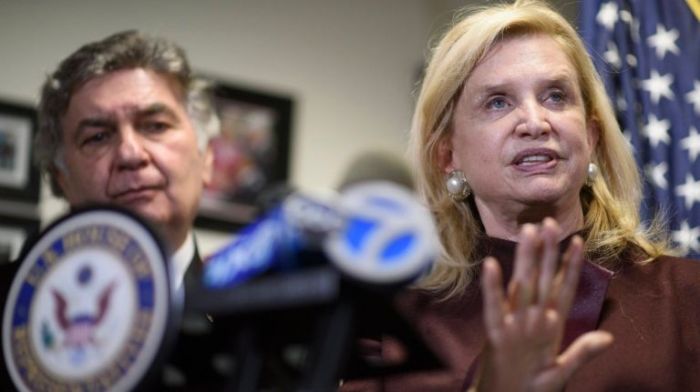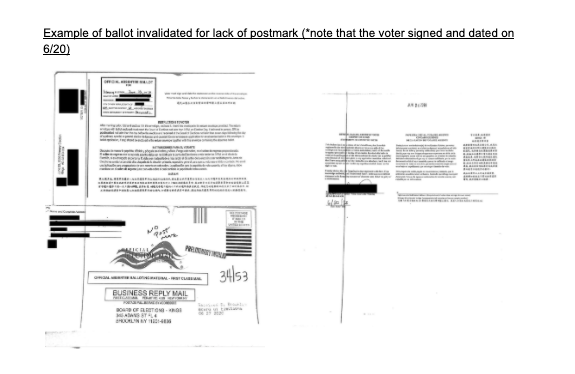In Manhattan’s new 12th Congressional district, a new style of insurgent candidate has emerged.
The newly drawn district that stretches over Manhattan from Union Square to the northern end of Central Park caused a stir when it became clear it would lead veteran Congress Members Jerry Nadler and Carolyn Maloney against each other.
Although much of the coverage of the race so far understandably has focused on the contest between the two sitting representatives who have chosen to duke it out in the primary, attorney, activist and persistent insurgent candidate Suraj Patel has a case to make that the younger side of the district could provide him with a path to victory.
To win this base, he’s been promoting a vision of market urbanism, a theory that encourages the construction of large-scale infrastructure projects and the loosening of zoning requirements to encourage market housing construction and address spiking housing costs.
In this sense, Patel’s new focus marks a change from the focus of the hard left insurgent campaigns that have emerged in New York City over the past four years. Patel first ran unsuccessfully against Maloney in 2018, and came within nearly 4 percent of her in 2020.
While both Maloney and Nadler have both begun to make their case by highlighting their high-profile committee appointments and list of career accomplishments, Patel took to Twitter earlier this month to differentiate himself in a viral thread bemoaning what he sees as unnecessary red tape around housing and transit projects.
“Locally, I gotta say this, we’ve reached a high point in this political culture of ‘No’ in Washington and in New York city. It’s led to a livability crisis and a crisis of confidence,” he told amNY and The Villager in an interview.
Patel continued on to say that, yes, he does embrace the term YIMBY, an acronym for the “yes in my backyard” mentality toward development projects.
“I’m proudly a YIMBY. I always have been. I know that that moment has come to some extent.” Patel said.
YIMBYism as a concept has proliferated in hyperlocal policy debates in recent years as a counter-reaction to NIMBYism, (“not in my backyard”) a term that originated to describe movements of neighbors who organize to fight nearby development, be that apartment complexes or infrastructure projects.
While Patel has latched on to the term to connote an ideological difference between himself and his competitors, it should be noted that much of the domain of urban planning falls outside of the purview of a member of Congress. Pushed on what powers he would have to execute this agenda, the first thing that Patel mentioned was that he would have supported the $1.2 trillion bipartisan infrastructure bill, which both Maloney and Nadler voted for.
“There is a national effort to try and make sure that when we build an infrastructure project, like the second avenue subway, that it doesn’t end up costing eight [or] nine times what it does in Western Europe, in France, which has as strong labor and environmental rights as we do,” Patel said.
Beyond legislative powers, Patel pointed to the recent SoHo/NoHo rezoning as an example where he thought his opponents were on the wrong side of the bully pulpit.
Both sitting Congress members publicly opposed the plan to increase housing density in those affluent Manhattan neighborhoods, which passed through the City Council before the end of de Blasio’s term. Maloney said the plan did not create truly affordable housing. Nadler said the project was rushed and ill-timed.
Patel thinks members of Congress should support rezoning initiatives like the one in SoHo as a means of addressing affordability by increasing available housing. To do more to address this issue in Congress, Patel said propose more private-public partnership to “fund the things that the private sector just isn’t currently doing.”
While Patel’s housing platform on his website focuses primarily on increasing the funding to NYCHA and other forms of public housing, he said that it doesn’t require “a massive program.”
One thing that Congress needs to do is repeal the Faircloth Amendment, which limits the number of public housing units that federal authorities could build, Patel said, adding that public housing is just one tool in the toolkit.
“We also need to look at rezoning and providing sticks and carrots to municipalities across the country, especially in places like New York and San Francisco, to increase density and to increase multi-layer zoning.”
Patel has dubbed his approach to politics as “pragmatic progressivism,” a style that he’s modeled after President Barack Obama, whose 2008 campaign he worked on directly out of law school.
“The reason we’re the progressive campaign is because fundamentally we don’t believe that anyone was entitled directly to a nomination or a seat, and that people who typically are disengaged in the local system need to be reengaged,” Patel said.
Though development has become a preoccupation of Patel’s, he told amNY and The Villager that his top legislative priorities hinge on voter suppression and misinformation. As a means of democratic reform, Patel has pledged to try and ban corporate PACs.
In addition to his proposed market-based solutions to the housing crisis, Patel shares some other progressive platform planks with the incumbent such as supporting Medicare for All and a Green New Deal. He also has plans to reduce mass incarceration through grant-based incentives and supports increased pathways to citizenship for immigrants.
On Monday, his campaign announced an endorsement from Andrew Yang, a Democratic with similar YIMBY impulses and other eclectic economic views. But beyond housing policy, Patel said that a big part of the connection he has with Yang stems from their appeal to win back voters who have been disengaged or looked over by the current Democratic establishment.
“My opponents in this race are gonna consistently talk about how they’ve advanced and passed bills that have died in the Senate. That’s the key point here, which of the three candidates in this race are fundamentally making an argument for a new message and messengers to win back the country?” Patel said.



































